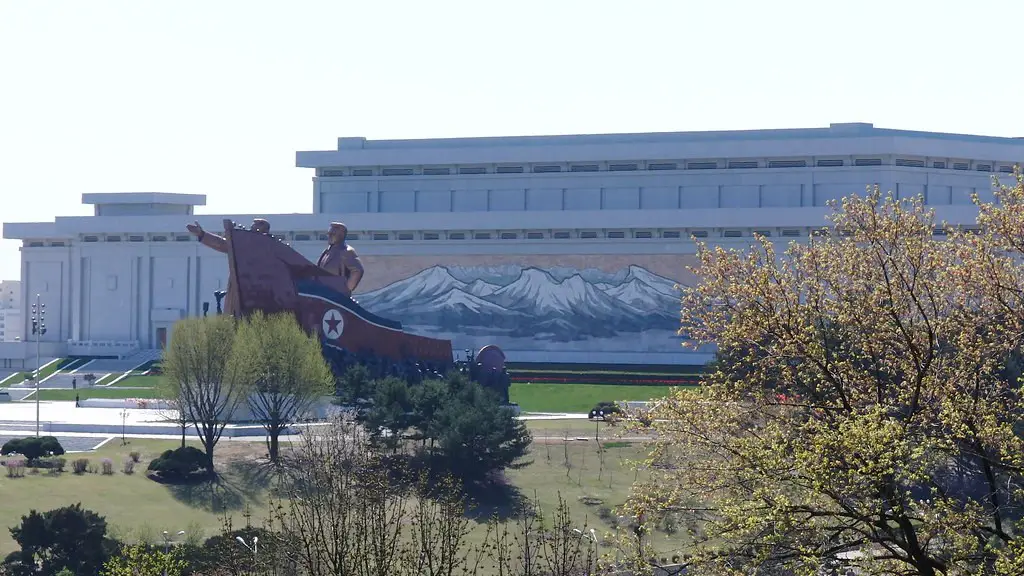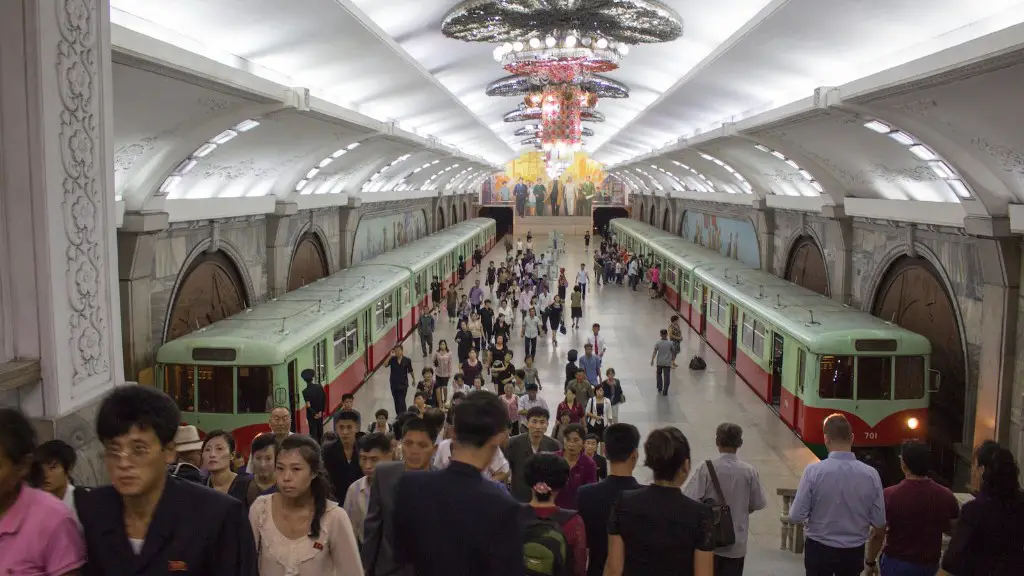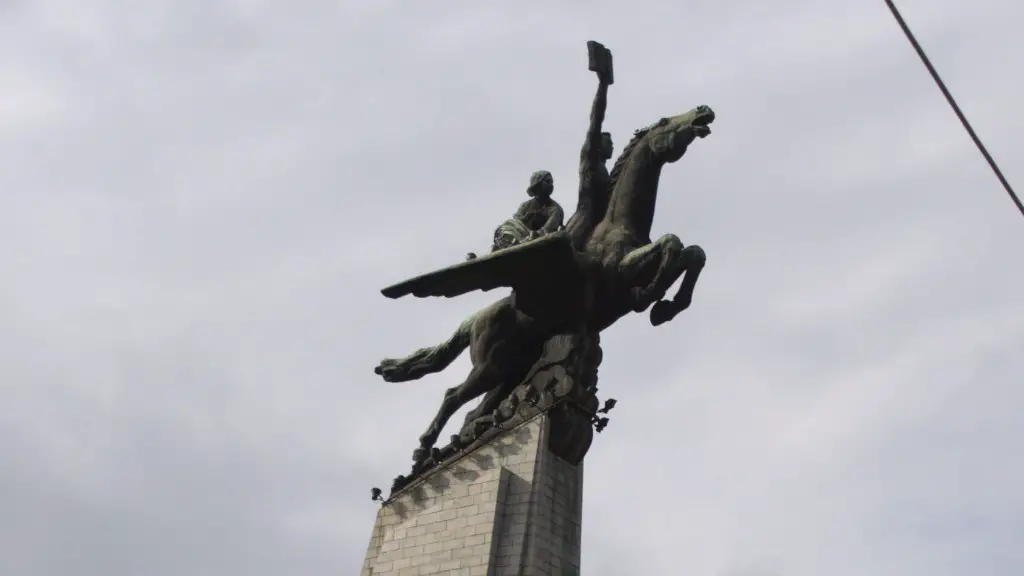Background of North Korea: North Korea, officially known as the Democratic People’s Republic of Korea, is an East Asian country occupying the northern half of the Korean Peninsula. With the Cold War that began in 1945, North and South Korea have been divided politically, with North Korea currently under the control of a Communist government. North Korea is one of the most isolated countries in the world and has been cited as such by various international organizations, such as the United Nations.
Landmass of North Korea: The landmass of North Korea, at 120,540 square kilometres, is approximately the size of England, with the majority of it being mountainous which North Korea refers to as the Great Korean Mountains. North Korea is surrounded by bodies of water, including the East Sea, Yellow Sea, and the Sea of Japan. The nation shares a border with China to the north, Russia to the northeast and South Korea to the south.
North Korea has several major inland rivers including the Yalu, Tumen, and Amnok. The rivers act as a transportation hub for the nation, as well as sources for drinking water and hydropower. North Korea also contains a number of lake systems, including Lake Wanp’o, Kumgang and Huichon. The nation also contains a significant number of natural resources, including coal, iron ore, gold, lead, copper, zinc, and molybdenum.
Agriculture in North Korea: North Korea’s landmass is also largely dominated by agricultural production, with over 90% of the total population relying on farming-based livelihoods. Rice is the most widely cultivated crop in the country, with some estimates suggesting that it accounts for 45% of all farmland. Other crops include millet, wheat, rye, maize, and potatoes. The nation also produces tea, sugar beet, and soybeans for export. North Korea is rich in mineral deposits, which are mined in numerous coal and iron mines scattered across the country.
Livestock in North Korea: North Korea has a large population of domestic animals, with estimates suggesting that there are over twenty-five million head of cattle, pigs, poultry, and goats. Livestock are heavily relied upon for food and also for industrial uses such as clothing, buttons, and wool. The Government of North Korea also operates several large-scale pig, cattle, and chicken farms, which are aimed at increasing food security and reducing the country’s reliance on imports.
Nature Reserves in North Korea: North Korea also has a variety of national parks and wildlife preserves. These include Arirang-san Nature Reserve, Paektusan Kumgangsan National Park, Myohyangsan Nature Reserve, and the Paektusan Songun Mountain Area. These nature reserves offer tourists the opportunity to observe a range of wildlife, such as the Asiatic black bear, tiger, wild boar, and Korean royal crane. The Korean royal crane is especially prized in Korean culture and North Korean authorities take special care to protect its population.
Geopolitics in North Korea
Relations with Other Nations: North Korea is heavily isolated in the international arena, with relations between the country and United Nations Security Council members, including the United States and South Korea, being frosty and often strained. The country has been accused by the United States and other countries of having pursued a policy of nuclear weapons development in pursuit of regional power. North Korea has denied any allegations of wrongdoing, maintaining that its nuclear weapons program is a matter of defensive deterrence and national security.
North Korea’s relations with China remain strong, despite tensions between the two countries, with China being North Korea’s closest ally. China is a key provider of food and fuel to North Korea, and is seen as a key broker in negotiations between North Korea and other countries. China also has a considerable influence in the Korean Peninsula, often being consulted by the United States and South Korea on a range of issues.
North Korea-United States Relations: Relations between the United States and North Korea have been hostile since the Korean War of 1950. The two countries have signed a number of agreements, but have been unable to progress much further in negotiations. International sanctions have been imposed upon North Korea by the United Nations in an attempt to persuade the nation’s government to cease its nuclear program. In June 2018, United States President Donald Trump and the leader of North Korea, Kim Jong-un, met in Singapore and signed a document to establish improved relations between the two countries.
North Korea’s Economy
Industry in North Korea: North Korea’s economy is heavily reliant upon industry, with an estimated 40% of total GDP coming from industrial production. Primary sectors focus on heavy industries such as metallurgy, chemicals, machine production, and non-ferrous metals. The country also produces textiles, footwear, apparel, and pharmaceuticals for both domestic and international markets.
North Korea also possesses a number of natural resources, with coal and iron ore being the most abundant. Mining is a key industry for the country, with the mineral deposits being used for both domestic and export purposes. North Korea also has large reserves of rare earth minerals, which are used in a range of high-tech applications. According to Chinese estimates, North Korea possesses the fourth largest reserves of rare earth minerals in the world.
Trade with Other Nations: North Korea is a relatively isolated economy, with the nation engaging in minimal external trade. The country heavily relies on economic aid from China and other countries, such as South Korea and Russia. North Korea also engages in bilateral trade with United States and other nations, with food and industrial goods being exchanged. However, due to international sanctions imposed by the United Nations, North Korea’s access to international financial markets is limited.
Tourism in North Korea: Despite its isolated nature, North Korea is a popular tourist destination. Tourists are able to visit numerous sites of historical interest, such as the Demilitarized Zone (DMZ), and cities such as Pyongyang, the nation’s capital. North Korea also offers a range of leisure activities and attractions, including the North Korean flagpole, which is the world’s tallest. Tourists are also able to visit numerous mountain and lake systems in the country.
North Korean Culture
Arts and Media: North Korea has a vibrant and diverse culture that has been shaped by the country’s turbulent history. Music, dance, and the visual arts are all common in North Korean culture, with an abundance of art galleries, theatres, and museums. North Korean literature is also renowned and features works by classic authors such as Kim Man-jung and Kim Jung-sik. North Korea also has a vibrant media industry, with the Korean Central News Agency (KCNA) serving as the state broadcaster.
Korean Cuisine: North Korean cuisine is an integral part of North Korean culture and is known for its variety and distinct flavours. Common dishes include naengmyeon (cold noodles), bibimbap (rice with vegetables and spices), galbitang (beef soup), and kimchi (spicy cabbage). Rice is the staple of North Korean cuisine, with a huge variety of dishes and flavours. Restaurants are also common in North Korean cities, and tourists are able to sample a range of dishes.
Sports: Sports are also a major part of North Korean life, with football, sambo, and table tennis being the most popular. The North Korean national football team has performed well at international tournaments and has twice reached the World Cup, in 1966 and 2010. The country also hosts several international sports tournaments, such as the Pyongyang Marathon, Arirang Mass Games, and International Friendship Gatherings. North Korea is also renowned for its skilled and renowned athletes, such as shooters and martial artists.
North Korea’s Future
Political Outlook: North Korea remains an isolated nation, however with the recent improvements in relations between the United States and North Korea, some speculate that the nation may eventually re-engage with the international community. North Korea is increasingly utilising market reforms and is actively engaging in the global economy. The nation is focusing heavily on developing its industrial sector, and if relations with the outside world continue to improve, North Korea may potentially become an emerging economy. However, the nation remains heavily isolated and is still under the control of a repressive government.
Social Outlook: North Korea remains a largely closed society, with citizens having limited access to the outside world. The majority of North Koreans are reliant upon subsistence farming and are heavily reliant upon foreign aid from China and other countries. The country is facing an ongoing food crisis, with estimates suggesting that malnutrition is widespread. North Korea’s society is often characterised by starvation, poverty, and human rights violations, with the government continually cracking down on dissidents.
Future Security: North Korea remains one of the most heavily defended countries in the world and has maintained a substantial national defence force since the 1950s. Due to its isolation, North Korea has traditionally relied upon a policy of self-reliance, with the nation attempting to build up an indigenous defence industry. The nation is also one of the few countries to maintain a nuclear weapons arsenal, with the government maintaining that their nuclear deterrent is necessary for national security. The nation also faces an ongoing threat from South Korea, with the two countries technically still at war.
Conclusion
North Korea is an isolated nation with a complex history and an uncertain future. The nation is rich in natural resources and is home to a unique and vibrant culture. However, due to the nation’s strict government policies it remains highly isolated from the international community. North Korea’s economy is largely dependent upon agricultural production and domestic industry, and the nation faces a range of challenges for the future. The nation remains heavily defended by its military and has a number of nuclear weapons, making it a powerful yet unpredictable nation in international politics.





